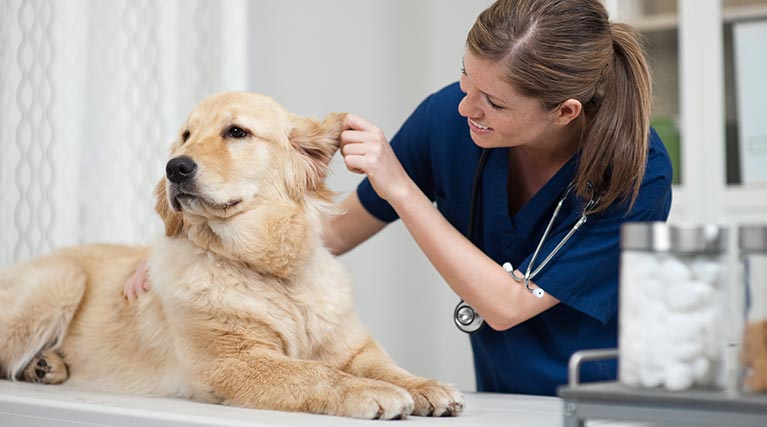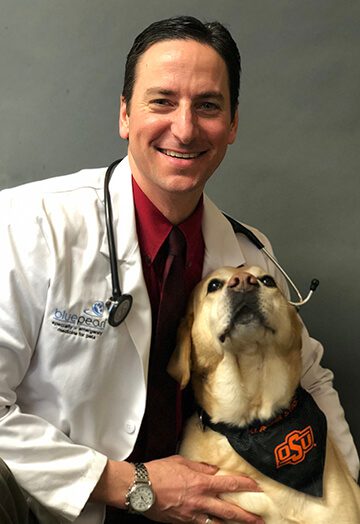Just How Emergency Vet Providers Can Offer Immediate Relief for Pet Health Situations
Just How Emergency Vet Providers Can Offer Immediate Relief for Pet Health Situations
Blog Article
Vaccination Guidelines From Your Relied On Veterinarian
Vaccination guidelines provided by your relied on veterinarian play a vital role in safeguarding your pet's health and wellness and health. Additionally, addressing usual mistaken beliefs surrounding vaccines can even more boost animal owners' self-confidence in these precautionary steps.

Relevance of Vaccinations
Inoculations play a pivotal role in protecting family pets against a variety of avoidable illness. By boosting the body immune system to acknowledge and battle specific pathogens, vaccines significantly reduce the occurrence of transmittable illness that can impact a pet's health and longevity. Not just do inoculations shield individual animals, but they additionally add to herd resistance, thereby reducing the total prevalence of diseases in the pet dog populace.
Prompt vaccinations help to minimize the spread of illness such as rabies, parvovirus, and distemper, which can have serious repercussions for both family pets and human beings. Vaccinations are frequently a requirement for boarding centers, grooming solutions, and pet parks, making them necessary for those that want to mingle their pet dogs.

Core Vaccinations for Animals
While the specific inoculation needs of pets can differ based on specific elements, core vaccinations are globally recommended to protect versus one of the most common and significant conditions (Veterinarian Enterprise). Core vaccines are those considered crucial for all animals, regardless of their way of living or geographical location, as they safeguard against extremely contagious and possibly fatal ailments
For canines, the core vaccinations consist of those for canine distemper, parvovirus, adenovirus (liver disease), and rabies. Adenovirus can result in liver disease, while rabies is a zoonotic illness that poses a danger to both pet dogs and humans.
In felines, core injections include feline panleukopenia, feline calicivirus, feline herpesvirus (rhinotracheitis), and rabies. Feline panleukopenia is a highly infectious viral illness that influences the body immune system and intestines. Calicivirus and herpesvirus are significant contributors to top respiratory system infections in cats, while rabies continues to be a crucial issue for public health.
Consult with your vet to guarantee your family pets obtain their core inoculations on timetable.
Non-Core Vaccines Explained
Non-core vaccines are customized to address particular threats related to a family pet's direct exposure, environment, and way of life to certain conditions. Unlike core vaccinations, which are generally advised for all pets, non-core injections are taken into consideration based on specific scenarios. These vaccines are particularly important for pets that might run into special pathogens as a result of their geographical area, travel practices, or tasks.
Examples of non-core official website injections include those for Bordetella bronchiseptica, which is connected to kennel cough, and Lyme condition, caused by ticks. Pets that often interact with other animals, such as those in boarding facilities, dog parks, or brushing atmospheres, may gain from Bordetella vaccination. Likewise, if you reside in an area where Lyme illness is prevalent, immunizing against this condition can be a sensible selection for outdoor-loving pets.
Various other non-core injections may consist of those for leptospirosis, canine influenza, and feline leukemia, depending upon the details risk factors existing. It is vital to have an extensive discussion with your veterinarian about your family pet's way of life and the prospective need for these vaccinations, making sure a customized vaccination approach that finest secures your furry buddy.
Inoculation Arrange Introduction

As pet dogs mature, it is very important to follow the suggested booster vaccinations. Veterinarian Enterprise. For grown-up pets, core injections are normally offered each to three years, relying on the details injection and local guidelines. Non-core vaccinations might be encouraged based upon way of living factors and local disease prevalence, requiring a tailored method
Regular veterinary exams are important for upgrading vaccination routines. Your veterinarian can offer advice on one of the most proper booster shots for your pet, considering age, wellness status, and ecological threats. By remaining proactive and educated, pet owners can ensure their furry friends receive reliable and prompt inoculations, thereby securing their health and wellness throughout their lives.
Usual Myths About Injections
Mistaken beliefs regarding family pet vaccinations can bring about complication and pop over to these guys reluctance amongst pet proprietors relating to the booster shot process. One widespread misconception is that vaccines are unneeded for interior animals. While it's real that indoor family pets face lower threats, they are not completely unsusceptible to conditions, as microorganisms can be introduced via various methods, consisting of human apparel and other pets.
Another false impression is that injections can create the illness they intend to stop. In truth, many injections contain suspended or undermined microorganisms, which can not trigger condition in healthy animals. Some animal owners likewise believe that their pets need to not be immunized if they are currently healthy; nonetheless, vaccinations are an aggressive measure that aids avoid the beginning of health problem.
Furthermore, numerous family pet owners fear that injections will certainly lead to long-lasting wellness issues. The advantages of inoculation-- shielding animals from potentially serious conditions-- much outweigh the dangers.
Conclusion
In recap, adherence to inoculation guidelines is vital for making sure the health and durability of pets. Resolving usual myths surrounding vaccinations further reinforces the value of educated decision-making in family pet treatment.
Not just do inoculations secure specific animals, yet they additionally contribute to herd resistance, consequently decreasing the total frequency of diseases in the family pet population.
False impressions concerning animal vaccinations can lead to complication and hesitation among pet dog owners regarding the booster shot procedure. While it's real that indoor animals encounter reduced threats, they are not completely immune to diseases, as pathogens can be presented through different methods, including human clothing and various other animals.
Some animal proprietors also believe that their animals need to not be immunized if they are currently healthy and balanced; nonetheless, inoculations are a proactive measure that helps protect against the beginning of ailment.
The benefits of vaccination-- safeguarding animals from potentially serious diseases-- far outweigh the risks.
Report this page